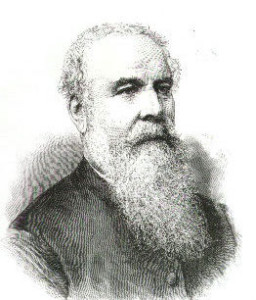
Forgiveness (14)

32K
Forgiven souls hate sin.Old Paths, Chapter 7
No repentance is acceptable with God but what is built on the faith of forgiveness
No child of God sins to that degree as to make himself incapable of forgiveness.
If we refuse to forgive, we have stepped into dangerous waters. First, refusing to forgive is to put ourselves in the place of God, as though vengeance were our prerogative, not his. Second, unforgiveness says God's wrath is insufficient. For the unbeliever, we are saying that an eternity in hell is not enough; they need our slap in the face or cold shoulder to "even the scales" of justice. For the believer, we are saying that Christ's humiliation and death are not enough. In other words, we shake our fists at God and say, "Your standards may have been satisfied, but my standard is higher!" Finally, refusing to forgive is the highest form of arrogance. Here we stand forgiven. And as we bask in the forgiveness of a perfectly holy and righteous God, we turn to our brother and say, "My sins are forgivable, but yours are not." In other words, we act as though the sins of others are too significant to forgive while simultaneously believing that ours are not significant enough to matter.
I have read of earthly Kings who knew not how to show mercy; of Henry the Eighth of England who spared neither man nor woman, - of James the Fifth of Scotland, who would never show favour to a Douglas. The King of kings is not like them. He calls on men to come to Him, and be pardoned.Old Paths, Chapter 7
We are prone to think that we are very willing to have forgiveness, but that God is unwilling to bestow it… but indeed things are quite otherwise.
Forgiveness makes not a Christian bold with sin, but fearful of sin, and careful to obey, as Christians find in their daily experience.Works of Thomas Brooks (5)
Forgiveness is a vertical commitment that is followed by a horizontal transaction.
Every time you ask for forgiveness, you recognize that the biggest problems you face in life exist inside of you, not outside of you.
I think that if God forgives us we must forgive ourselves. Otherwise, it is almost like setting up ourselves as a higher tribunal than Him.
There is no greater state than to get up from your knees knowing that God has forgiven every sin you've ever committed.
To love means loving the unlovable. To forgive means pardoning the unpardonable. Faith means believing the unbelievable. Hope means hoping when everything seems hopeless.
Every one says forgiveness is a lovely idea, until they have something to forgiveMere Christianity (115)
Get notified when new 'Forgiveness' quotes come out?
Top Authors
1. Charles Spurgeon (133)
2. Thomas Watson (128)
3. J.C. Ryle (117)
4. John Calvin (106)
5. J.I. Packer (89)
6. John Piper (87)
7. George Swinnock (76)
8. A.W. Pink (68)
9. Louis Berkhof (63)
10. C.S. Lewis (59)
11. John Flavel (59)
12. Martyn Lloyd-Jones (58)
13. B.B. Warfield (58)
14. John Owen (55)
15. R.C. Sproul (55)
16. Heinrich Bullinger (53)
17. Gerald Bray (50)
18. Francis Schaeffer (49)
19. Thomas Brooks (47)
20. Francis Turretin (47)
2. Thomas Watson (128)
3. J.C. Ryle (117)
4. John Calvin (106)
5. J.I. Packer (89)
6. John Piper (87)
7. George Swinnock (76)
8. A.W. Pink (68)
9. Louis Berkhof (63)
10. C.S. Lewis (59)
11. John Flavel (59)
12. Martyn Lloyd-Jones (58)
13. B.B. Warfield (58)
14. John Owen (55)
15. R.C. Sproul (55)
16. Heinrich Bullinger (53)
17. Gerald Bray (50)
18. Francis Schaeffer (49)
19. Thomas Brooks (47)
20. Francis Turretin (47)
Top Topics
1. Sin (206)2. Scripture (152)
3. Prayer (137)
4. Faith (118)
5. Preaching (115)
6. The Law (105)
7. Gospel (104)
8. Salvation (89)
9. Suffering (89)
10. Sabbath (88)
11. Church (76)
12. Christ (67)
13. Law (61)
14. Grace (55)
15. Justification (54)
16. Truth (53)
17. Love (46)
18. Creation (43)
19. Theology (43)
20. Children (41)
21. Ten Commandments (40)
22. Worship (39)
23. Fear (38)
24. Heaven (38)
25. Holiness (38)
26. Obedience (37)
